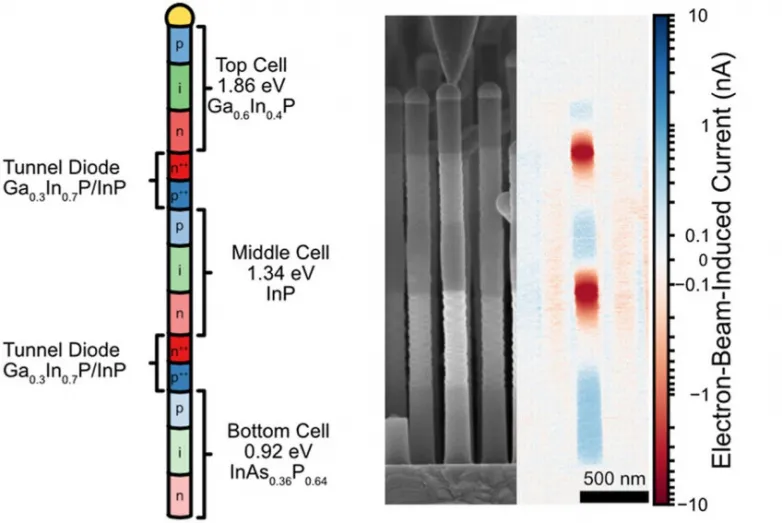New Solar Cells Tested in Space Show Promising Results
- Researchers at Lund University in Sweden have developed photovoltaic nanowires using three materials to improve the efficiency of solar energy. These tandem solar cells are now being tested on satellites.

What happened?
Lund University researchers succeeded in constructing small solar radiation-collecting antennas (nanowires) with three different materials that better match the solar spectrum compared to current silicon solar cells.
The nanowires are light and require little material per unit of area, making them ideal for installation on satellites where efficiency and low weight are crucial factors.
Why does it matter?
The focus has shifted from traditional silicon solar cells to tandem solar cells because silicon solar cells have reached their maximum limit for efficiency.
The tandem solar cells have the potential to increase efficiency, with the goal of potentially doubling the efficiency of commercial silicon solar cells (around 20%).
What's next?
The nanowire solar cells will be tested on a research satellite in orbit during the spring and results are expected to come in on an ongoing basis.
In the future, these solar cells could be used on Earth in niche applications such as clothes, windows, and decor, but initially they will be used in space.
The researchers plan to optimize the triple diodes by improving the tunnel junctions connecting the different materials in the structure and reducing the impact of the nanowires' surface on the nanoscale.
Also read
- CNNP Optoelectronics brings utility-scale perovskite modules out of the lab
- Low-Temperature Sequential Deposition Lifts Inverted Perovskite Solar Cells Efficiency Record
- Self-Assembling Molecule Breakthrough Brings Commercial Perovskite Solar Closer to Market
- Camphor Additives Boost Perovskite Solar Cell Efficiency
- NUS Sets Record With 26.4% Perovskite-Organic Solar Cell
